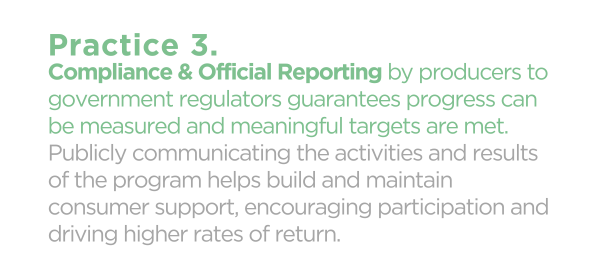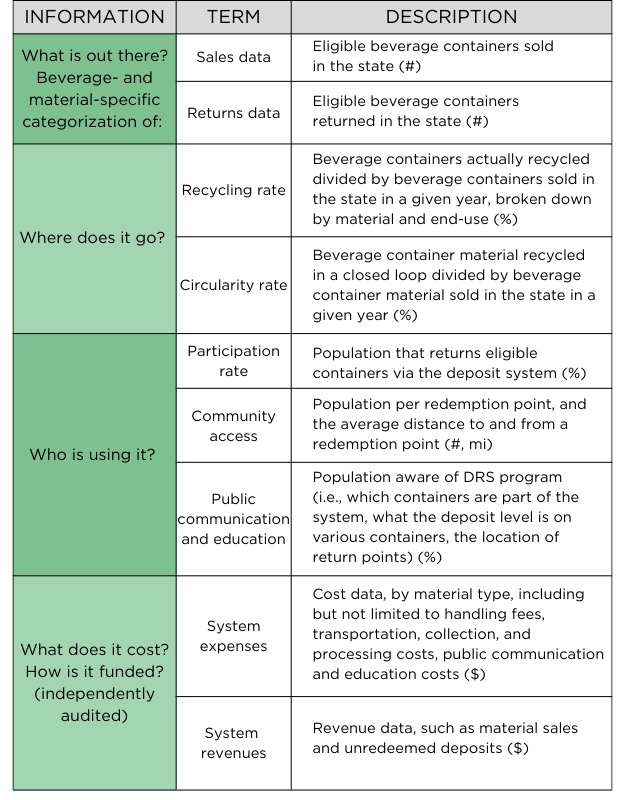Thank you for joining us for Lucky Newsletter #13!
Welcome to the 13th issue of Bottle Bill Common Ground — a limited-series newsletter from Reloop North America highlighting evidence-based guidance for legislators, policy makers, industry, and advocates working on bottle bills. (If you haven’t read our first 12 issues, you can do so here.)
We are now focused on 10 essential practices — requirements on how to build, run, and maintain a modern deposit return system (DRS) for beverage containers. The third essential practice is:

The adage “you cannot manage what you cannot measure” aptly pertains to modernized DRS. Regular, robust, and transparent reporting ensures that regulators can accurately measure and enforce progress against meaningful targets and assess overall system performance.
At a minimum, statutes and regulations need to clearly state enforcement procedures and penalties, along with the government agency responsible for enforcing them. (Remember Practice 1: Meaningful Targets and Penalties?)
Accountability is key to any program’s success. Performance reporting in a DRS serves to:
- Keep regulators and the public informed about progress towards codified goals
- Demonstrate the managing body’s competence, as a prerequisite for retaining their operating license
Modern DRS legislation should require the following minimum information be reported on an annual basis at the state level:

Alongside official performance reporting, it is best practice to communicate system results to all stakeholders, especially the public. An annual report serves as an important touchpoint and should be as engaging and accessible as possible.
To build and maintain public awareness and support, annual reports should go beyond mere numbers and ought to showcase the socio-economic and environmental benefits derived from the system, such as jobs created, reduced littering rates, and avoided carbon emissions. They can also explain the overall intentions of the program, what beverages and container types are included, and shed light on the planned and existing collection point infrastructure.
Best Practice Example: Quebec
Quebec’s new deposit return regulations contain detailed reporting requirements for each distributor including product type; quantity sold and recovered; quantity recycled into closed-loop applications (i.e., bottle-to-bottle or can-to-can), rejected, or disposed; and all parties involved in reclaiming or disposing containers. Quebec reforms set traceability and independent third-party auditing as prerequisites in the officially reported recycling rate calculation.
Thanks for reading! We encourage you to share this newsletter widely with those who want or need to know about these principles and practices. Working together from a common ground of knowledge, we can move good bottle bills forward. Sign up here to get these blog posts as emails.
